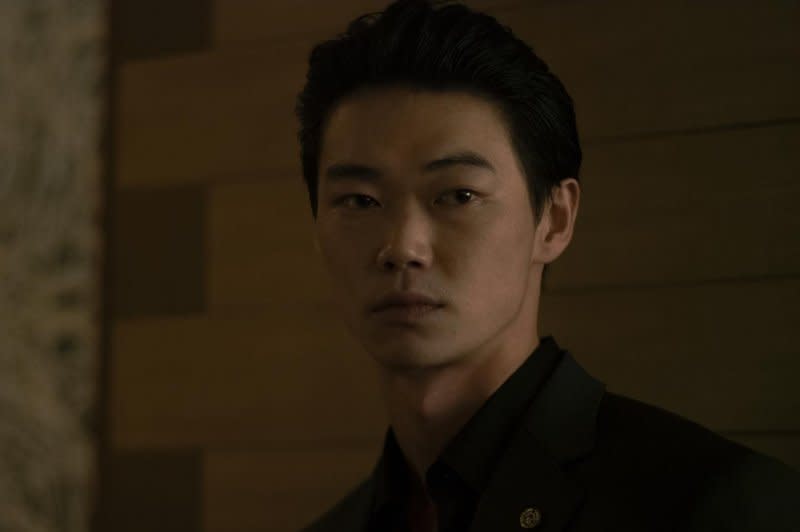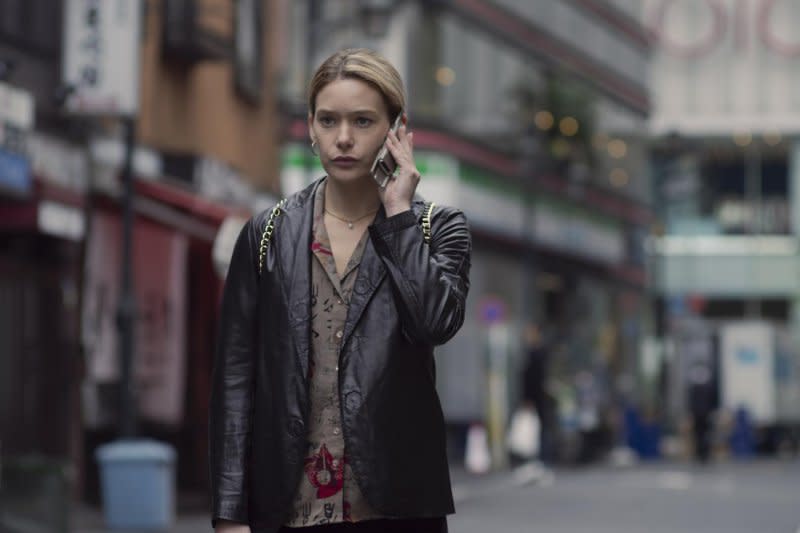Show Kasamatsu: 'Tokyo Vice' fans couldn't wait to learn Sato's fate

NEW YORK, Feb. 8 (UPI) -- Show Kasamatsu says he was overwhelmed by the concern Tokyo Vice fans expressed when his gangster character, Sato, was beaten and left for dead at the end of the crime drama's first season.
The finale left Sato's fate unclear, and it wasn't until the first trailer for Season 2 was released months later that apprehensive viewers learned he survived.
"The responses from all over the world were surprising. At the same time, I was really happy," Kasamatsu told UPI through a translator in a recent Zoom interview.
"They sent me messages saying, 'I want to know if Sato is living or dead.'"
His co-star, Rachel Keller, added, "Every single person in my family called me to ask me if Sato is alive or not."

Set at the turn of the last century, the show kicks off its second season on Max on Thursday.
The series is based on a true story and follows Jake (Ansel Elgort), an American journalist working for a Japanese newspaper, who teams up with police detective Hiroto (Ken Wataname) to investigate Tokyo's criminal underworld.

In that underworld, Sato is a low-level enforcer for the brutal Chihara-kai yakuza organization and the handler of American Samantha (Keller), a popular hostess at the Onyx Club.
Samantha is a grifter who dreams of opening her own bar, but whose fortunes reverse at the end of Season 1.

"All of her money is stolen for where she wants to start her club and she's lost her friend," Keller said, referring to Polina (Ella Rumpf), a young woman trafficked and murdered, despite Samantha's best efforts to save her.
"That's how Season 1 ends and we pick it up in Season 2 where she's getting her loan to do the club she wants to do and learns what happens to Polina," Keller added.
Turned down for a loan from banks, Samantha secures the start-up money from gangsters, thinking she can handle their managerial interference and crippling interest.
"She's kind of got blinders on because there is no other option at that point," Keller said.
"It's the club or nothing, so she makes the deal because that is the only way she can get the money to start her club and she'll deal with [everything else] later on."
Samantha wants to create a different kind of atmosphere than can be found at the glossy, contemporary clubs at which the characters conduct business and seek pleasure.
"I always thought about her club as like a living room, warmer with sofas everywhere, sultry and comfortable," Keller said.
Viewers won't have long to wait to see Sato out of the hospital and back in action.
"In Season 1, Sato was involved in so many things against his will, but, in Season 2, he's becoming the right-hand man to the big yakuza boss," Kasamatsu said. "One mistake might get you killed. The stakes are really high."
Sato and Samantha have been through a lot and their relationship evolves over the course of the two seasons as they shift from pseudo-workplace colleagues to friends to lovers.
"Samantha is a guy magnet -- so, so popular -- and that makes Sato jealous and have mixed feelings toward her," Kasamatsu said.
"It's not breaking up or separation. They are connected somewhere, somehow. How their relationship goes until the end, that is something I want the audience to see and feel -- a little bit of itchiness in the heart."
Keller said Rachel also is trying to figure out where Sato fits in her life.
"It's that thing when you meet someone and you just trust them and respect them. You are attracted to them and you are going to rely on each other. It is a true friendship. It evolves," she added.
"They are not romantically linked at the end of Season 1, but then, at the start of Season 2, they have this business arrangement because this club is owned by the yakuza and he is related to that. But there is this kind of inevitability about them, which always felt nice to have that tension inside that relationship."
While Sato keeps crossing paths with Jake, he hasn't grown any fonder of the intrepid reporter.
"Every time they meet somewhere, Jake is asking Sato a favor or something that Sato doesn't want to do that he ends up doing for him," Kasamatsu said.
"When they meet, [the audience knows] something is going to change or happen. It's always great to have a moment with Jake and Ansel, as an actor, is unpredictable, so every take is different."
Samantha also has a complicated relationship with the needy Jake.
Although they are bonded as expats far away from home, Jake constantly harasses the power brokers -- legit or otherwise -- at Samantha's club.
"Their jobs are intertwined," Keller said of Jake and Samantha.
"Her clients at the club are the people whom he wants to be interviewing. They have a friendship," she added. "I really loved how, in Season 1, there is a scene when they are high on crystal meth and they go and make out in an alley. I love that we never revisited that. Friendships are born like that sometimes."
Samantha is resourceful and intelligent, but doesn't get out of Tokyo and head somewhere else when her life gets too dangerous because she really loves Japan, its people and culture, Keller said.
"It's the place she feels the most home. It could also be fear of returning back to America or starting over again somewhere," she added.
"So many women all over the world come to Japan to become hostesses and find some autonomy and confidence and financial independence. If you earn some kind of sense of control over your life, it's a really hard thing to walk away from. You really want to see it through."

